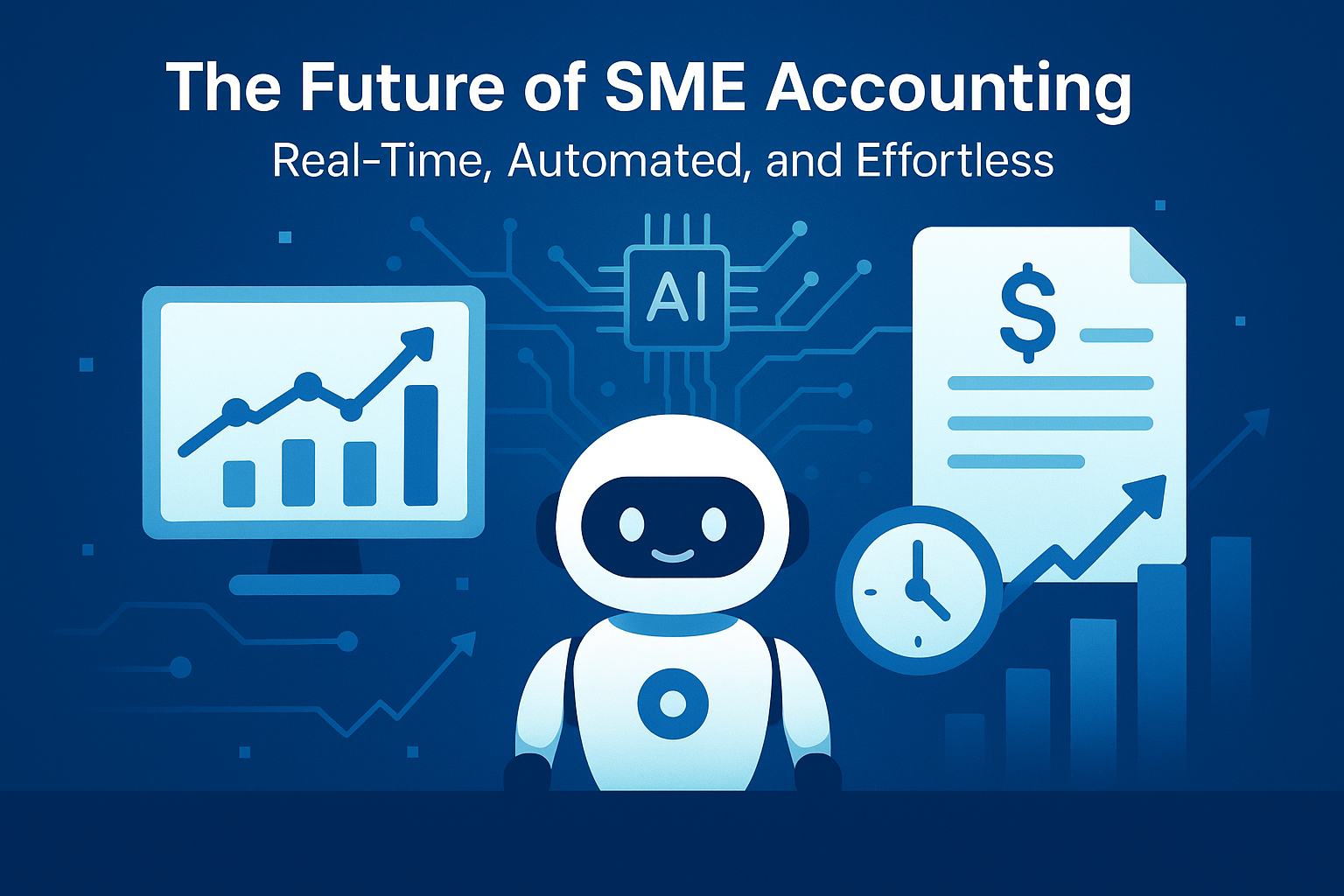
Accounting has always been one of the most essential yet time-consuming parts of running a business. For small and medium-sized enterprises (SMEs), it often means long nights of data entry, missing receipts, delayed reports, and constant uncertainty about cash flow.
But that’s changing — fast.
The future of SME accounting is real-time, automated, and effortless, powered by Artificial Intelligence (AI) that transforms how financial data is collected, analyzed, and used.
Here’s what this future looks like — and why it’s already becoming the new normal for growing businesses.
Traditional accounting runs on delay. You close the books at the end of the month, review reports a week later, and only then realize what went wrong.
AI-powered accounting flips that model.
Transactions are captured and processed automatically, so data stays live and accurate at all times.
That means business owners can now:
With platforms like ccMonet, accounting becomes continuous — giving SMEs a real-time pulse on their financial health instead of a static snapshot.
Manual accounting involves endless repetitive work: typing invoice details, matching transactions, checking receipts, chasing missing documents.
Automation takes over these tasks completely.
AI systems can now:
Instead of hiring more staff as your business grows, automation scales with you — handling higher volumes of data effortlessly and accurately.
For many SMEs, accounting data sits buried in spreadsheets or static reports. It’s accurate — but inaccessible.
The next generation of accounting systems turns that data into interactive dashboards that update automatically.
Business owners can view:
Visual, easy-to-read dashboards replace complex spreadsheets — empowering non-accountants to make quick, informed decisions without waiting for reports.
AI doesn’t just automate; it analyzes.
By learning from past financial patterns, AI can forecast future trends — giving SMEs foresight instead of hindsight.
Imagine knowing:
AI forecasting transforms accounting from recordkeeping into strategy — helping SMEs anticipate challenges before they appear.
Regulatory requirements are becoming more complex across markets, and compliance mistakes can be costly.
AI accounting reduces that risk dramatically.
Intelligent systems automatically:
In solutions like ccMonet, automation is paired with expert review — combining AI precision with human oversight for guaranteed compliance and peace of mind.
The future of accounting is not just about automation — it’s about accessibility.
AI systems translate complex reports into plain language, explaining what’s happening in the business without jargon.
For example:
“Your operating costs increased by 14% this month, mainly due to supplier invoices. Your gross profit margin dropped slightly — here’s how to improve it.”
With explanations like this, even non-finance team members can understand, collaborate, and contribute to smarter decision-making.
As SMEs expand — new locations, currencies, or entities — traditional accounting systems struggle to keep up.
AI simplifies multi-entity, multi-currency operations by standardizing data, consolidating reports, and managing all entities in one place.
Businesses can now scale without losing control, keeping every number aligned and up to date, no matter how fast they grow.
The future of SME accounting isn’t about working harder — it’s about working smarter.
AI and automation are redefining what financial management looks like:
For SMEs, this future is already here — accessible, affordable, and transformative.
With AI-driven platforms like ccMonet, business owners can finally regain time, accuracy, and control — turning accounting from a chore into a strategic advantage.
Accounting used to be about recording the past.
Now, it’s about predicting — and shaping — the future.